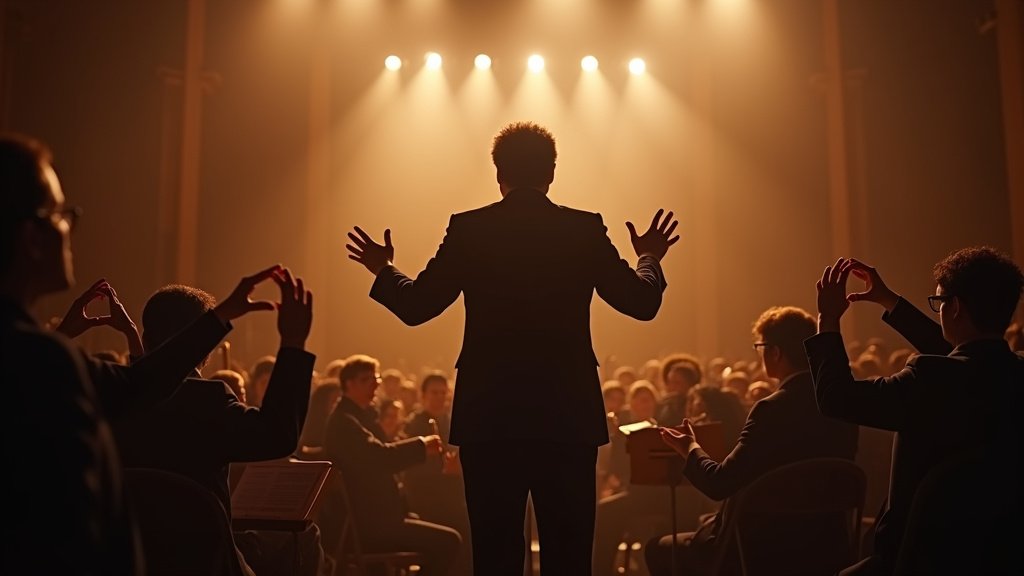Gustavo Dudamel, the esteemed music and artistic director of the Los Angeles Philharmonic, is delving into new territories of musical expression, exploring Ludwig van Beethoven’s profound opera ‘Fidelio’ through the evocative medium of sign language. This unique artistic journey has culminated in the documentary ‘El canto de las manos’ (The Song of the Hands), a film that offers a powerful testament to music’s universal reach.
A Symphony of Silence
The documentary ‘El canto de las manos’ centers on the inspiring experiences of three deaf Venezuelan musicians. These artists bring Beethoven’s dramatic and emotionally charged opera ‘Fidelio’ to life, interpreting its intricate narrative and soaring melodies not through audible sound, but through the nuanced and expressive power of sign language. Dudamel’s engagement with this project underscores his belief in music’s innate ability to transcend conventional barriers, reaching audiences and performers on a deeper, more fundamental level.
Music Beyond Hearing
Dudamel’s exploration highlights a critical aspect of musical appreciation that often goes unacknowledged: its vibrational and deeply felt dimensions. For those who are deaf or hard of hearing, music can be experienced through the physical sensations of vibrations, felt through the body, and translated into visual and gestural language. This perspective challenges traditional notions of musical performance and reception, suggesting that the essence of music lies not solely in auditory perception but in its capacity to evoke emotion and communicate meaning through diverse sensory channels.
His reflections draw a powerful parallel to Beethoven himself. As Dudamel noted, “As Beethoven became deaf, he created his own musical language that transcended and remains avant-garde.” This statement captures the revolutionary spirit of both the composer and Dudamel’s current artistic endeavor. Beethoven, in his increasing deafness, developed a compositional style that was not only innovative but also deeply personal and profoundly communicative, pushing the boundaries of musical expression in ways that continue to resonate today. Similarly, the deaf musicians in ‘El canto de las manos’ are forging their own unique language to interpret a masterpiece, demonstrating an artistic resilience and creativity that mirrors Beethoven’s own struggle and triumph.
Bridging Divides in Los Angeles and Beyond
The project has significant implications for the Los Angeles music scene and the broader understanding of accessibility in the arts. By examining ‘Fidelio’ through sign language, Dudamel and the film’s subjects are not only honoring Beethoven’s legacy but also championing inclusivity. The documentary serves as a powerful reminder that artistic passion and profound musical connection are not limited by physical ability. It is a trending topic in discussions about arts accessibility and innovation.
This initiative from the Los Angeles Philharmonic’s artistic director aims to foster a more inclusive environment within the music world. It encourages audiences and artists alike to consider the multifaceted nature of music and its potential to connect people across different experiences and backgrounds. The news of such innovative projects continues to generate excitement in the music news landscape.
A Universal Language
‘El canto de las manos’ ultimately celebrates the enduring power of music as a universal language. Through the visual poetry of sign language, the deeply felt vibrations of sound, and the sheer force of human creativity, Beethoven’s ‘Fidelio’ finds new expression and meaning. Gustavo Dudamel’s visionary approach not only enriches the operatic experience but also expands our collective understanding of what music can be and who can participate in its magic, proving that the most profound connections often transcend what we can hear.





